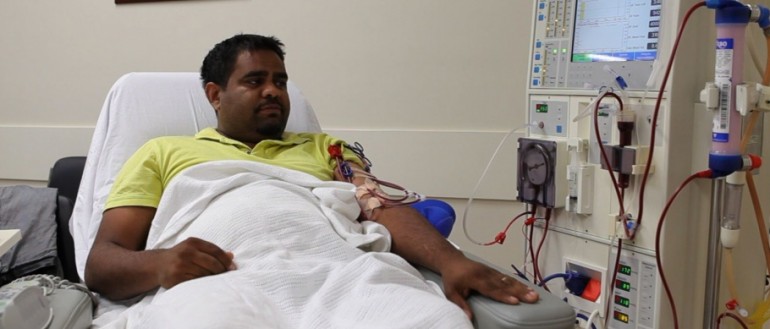For many years, experts at Menzies School of Health Research have contributed to the development and revision of national guidelines for health service delivery. The COVID-19 pandemic poses multiple challenges to how we deliver critical health services for people with pre-existing chronic conditions.
Despite concerns regarding the risks posed by COVID-19, these people need to maintain regular follow-up, continue necessary medications and receive treatments to stay healthy. At Menzies, our experts have been at the forefront of helping to protect patients with kidney disease. In Australia, there are around 10,500 people with severe kidney disease, who require haemodialysis (HD) treatment three times per week in medical facilities.
Early analysis of the pandemic in Wuhan, indicated that approximately 20 percent of HD patients in a large hospital developed COVID-19 within the first month of the outbreak, as did more than 10 percent of renal unit staff. Data from Europe suggests that dialysis patients who have become infected with COVID-19, have a high risk of mortality.
While Australia appears to have avoided the massive numbers of COVID-19 infections and deaths experienced in China and Western Europe, the risk to HD patients is still a very real possibility.
The NT has more than 800 HD patients, predominantly Aboriginal patients from remote communities. For this group, complex issues that need to be addressed include appropriate accommodation, transport, prevention of transmission within renal units – including to staff, how to maintain physical distancing and self-isolation if required, and ongoing access to medications and remote medical review.
Menzies staff including Prof Alan Cass, A/Prof Jaqui Hughes and Dr Paul Lawton are contributing to the development of new guidelines for the ongoing management of dialysis and transplant patients seeking to prevent an outbreak and avoid preventable deaths amongst this vulnerable group.
Gill Gorham, Menzies Renal Research Program Manager, is a member of the ANZ Society of Nephrology COVID-19 Working Group, which has broad representation from key renal organisations across Australia and New Zealand.
The working group was established to inform national approaches to renal service planning during the pandemic and assist renal services with workforce planning, the dissemination of information and resources, and to facilitate lobbying on the local and national level.

